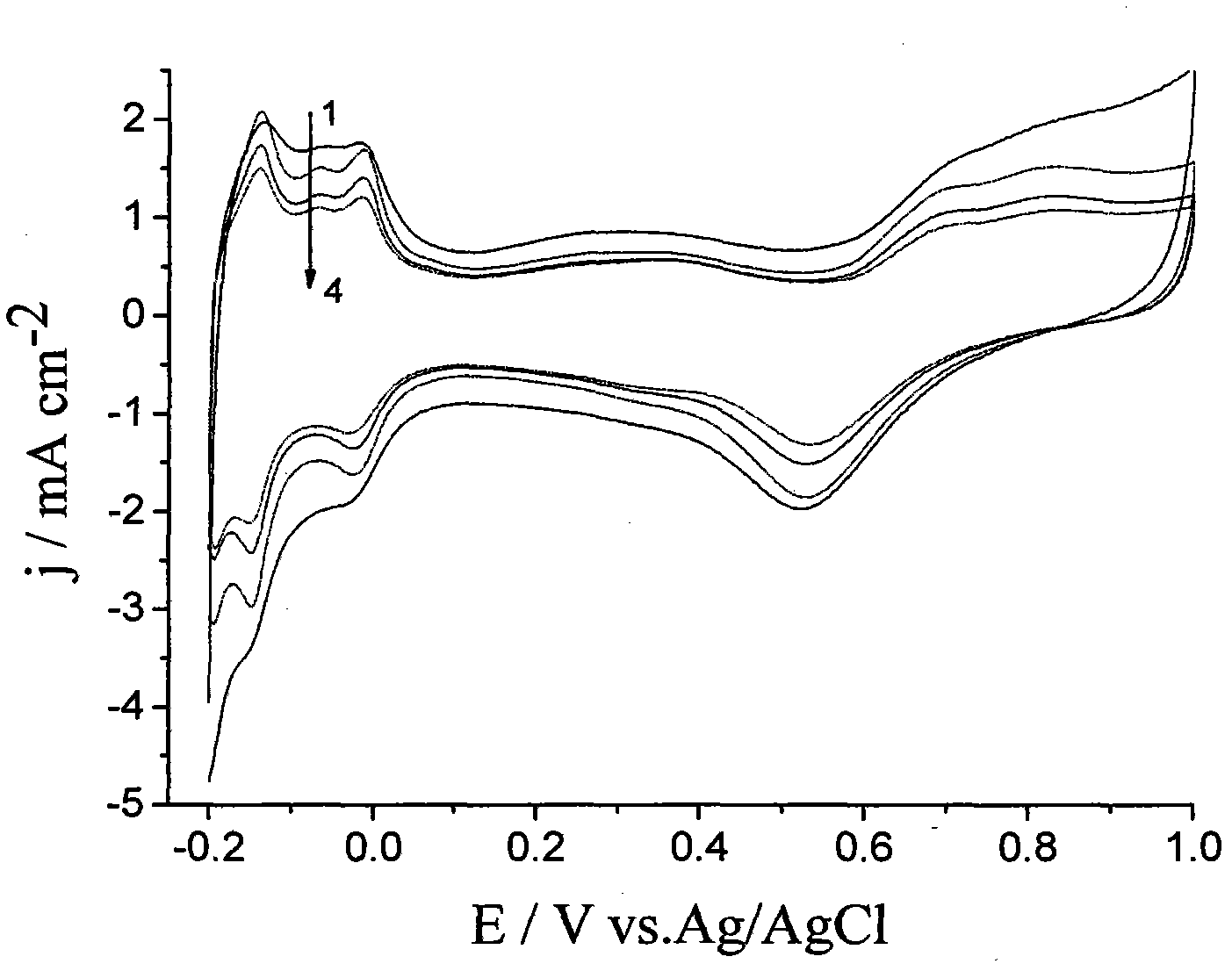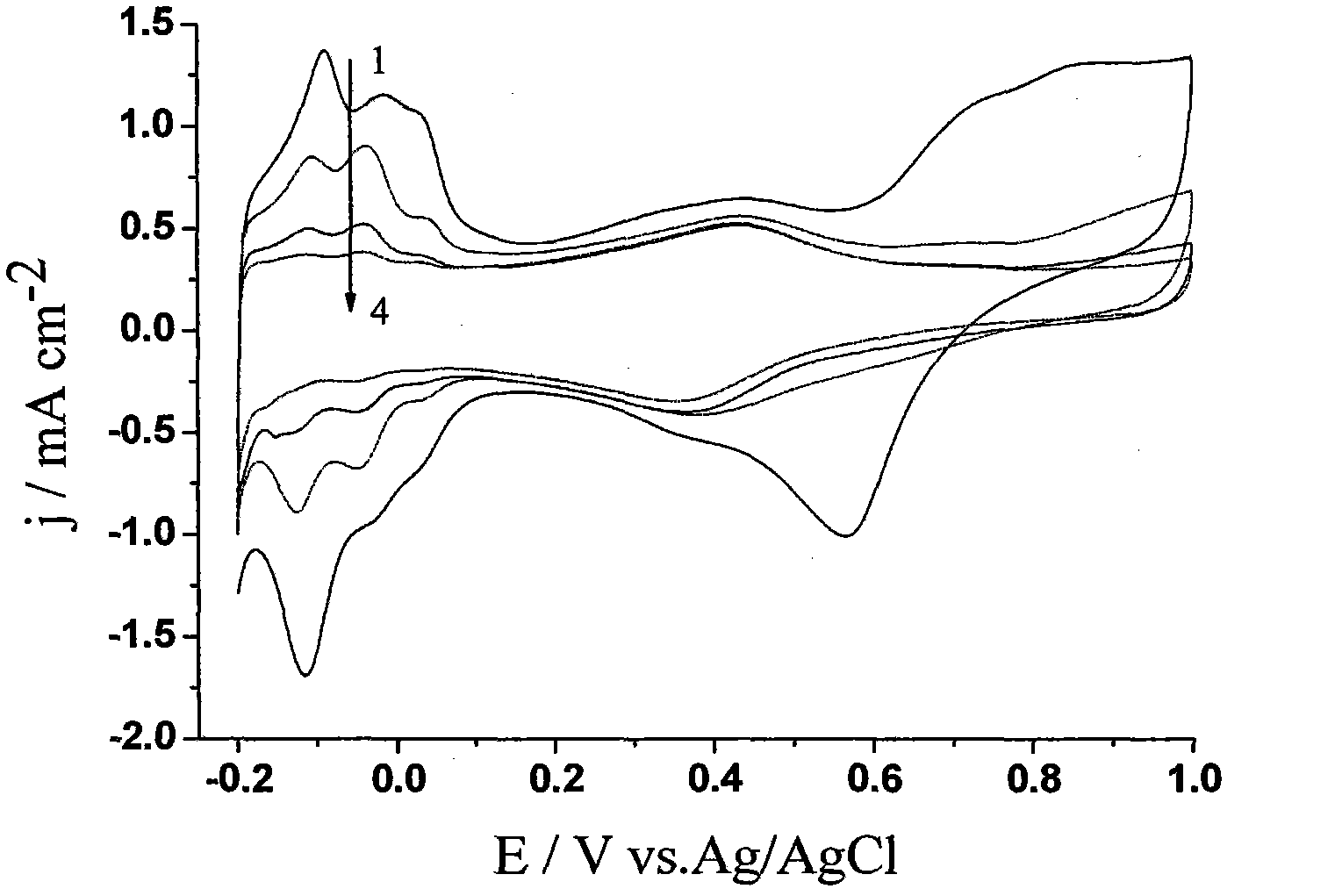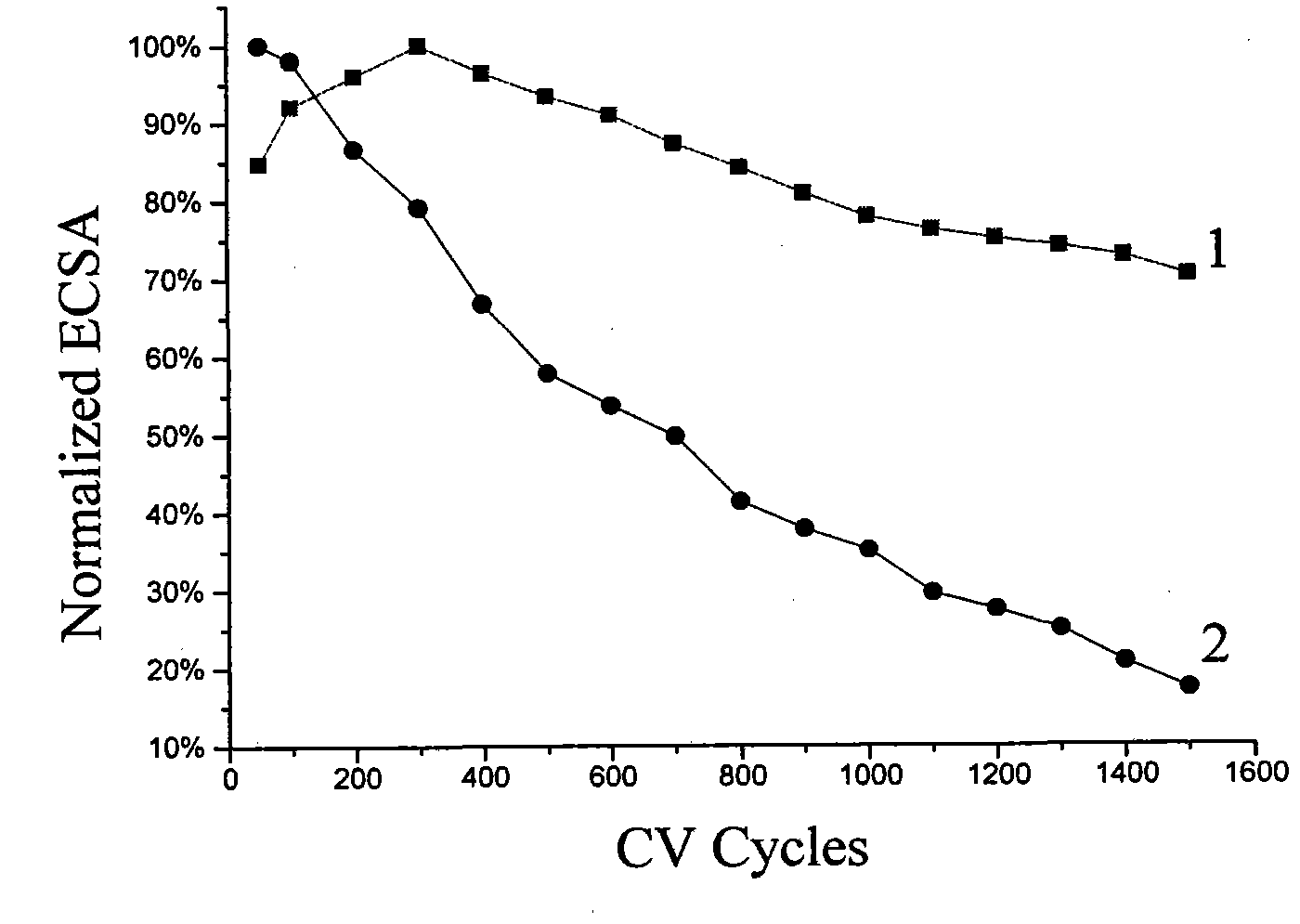Method for improving stability of fuel cell catalyst and utilization rate of catalyst
A fuel cell and catalyst technology, which is applied to fuel cell additives, battery electrodes, circuits, etc., can solve the problems of low catalyst utilization rate and poor catalyst stability, and achieve the effects of excellent oxygen permeability, oxidation resistance and low production cost.
- Summary
- Abstract
- Description
- Claims
- Application Information
AI Technical Summary
Problems solved by technology
Method used
Image
Examples
Embodiment 1
[0032] (1) Functional treatment of carbon support
[0033] Weigh 1 gram of commercially available Vulcan XC-72 carbon powder, add 150 milliliters of 30% hydrogen peroxide and concentrated sulfuric acid mixed solution with a volume ratio of 1:4, ultrasonically vibrate and stir for 3 hours, dilute with ultrapure water, and statically After standing for 24 hours, the supernatant was filtered out, washed by centrifugation for several times, dried, and ground to obtain a functionalized carbon carrier.
[0034] (2), preparation of Pt / C catalyst
[0035] According to functionalized Vulcan XC-72 carbon powder: the mass ratio of chloroplatinic acid is 1: 1 to take functionalized Vulcan XC-72 carbon powder and chloroplatinic acid, and use ethylene glycol as a solvent to vibrate evenly under ultrasonic conditions, Then, under the protection of nitrogen or argon atmosphere, stirred and refluxed at 140°C for 3 hours, cooled to room temperature, washed the product by centrifugation, dried,...
Embodiment 2
[0041] (3) In situ synthesis of polyaniline modified Pt / C catalyst
[0042] By Pt / C catalyst: the mass ratio of aniline is 1: 1 to take by weighing Pt / C catalyst and aniline, by aniline: the mol ratio of ammonium persulfate is 1: 1 to weigh ammonium persulfate; Add aniline to the aqueous solution, and after ultrasonic stirring for 10 minutes, add the Pt / C catalyst prepared in step (2), and continue ultrasonic stirring for 2 hours. The ammonium persulfate in the hydrochloric acid aqueous solution at 0 is slowly added dropwise to the mixed solution of the Pt / C catalyst and aniline, and the dropping time is controlled at 10 minutes. After the dropping is completed, the reaction is continued for 5 hours under stirring at 25°C; Then the product is centrifugally washed, dried, and ground to obtain a polyaniline-modified Pt / C catalyst.
[0043] (4) Stability test of polyaniline modified Pt / C catalyst
[0044] Weigh 2 mg of the polyaniline-modified Pt / C catalyst prepared in step (3)...
Embodiment 3
[0046] (3) In situ synthesis of polyaniline modified Pt / C catalyst
[0047] By Pt / C catalyst: the mass ratio of aniline is 1: 0.1 to take by weighing Pt / C catalyst and aniline, by aniline: the molar ratio of ammonium persulfate is 1: 1.25 to take by weighing ammonium persulfate; Add aniline to the aqueous solution of chloric acid, and after ultrasonic stirring for 30 minutes, add the Pt / C catalyst prepared in step (2), and continue ultrasonic stirring for 1 hour. The ammonium persulfate in the perchloric acid aqueous solution with a pH value of 0 is slowly added dropwise to the mixed solution of Pt / C catalyst and aniline, and the dropping time is controlled at 30 minutes. React for 24 hours; then the product is centrifugally washed, dried, and ground to obtain a polyaniline-modified Pt / C catalyst.
[0048] (4) Oxygen Reduction Performance Test of Polyaniline Modified Pt / C Catalyst on Rotating Disk Electrode
[0049] Weigh 2 mg of the polyaniline-modified Pt / C catalyst prepar...
PUM
 Login to View More
Login to View More Abstract
Description
Claims
Application Information
 Login to View More
Login to View More - Generate Ideas
- Intellectual Property
- Life Sciences
- Materials
- Tech Scout
- Unparalleled Data Quality
- Higher Quality Content
- 60% Fewer Hallucinations
Browse by: Latest US Patents, China's latest patents, Technical Efficacy Thesaurus, Application Domain, Technology Topic, Popular Technical Reports.
© 2025 PatSnap. All rights reserved.Legal|Privacy policy|Modern Slavery Act Transparency Statement|Sitemap|About US| Contact US: help@patsnap.com



